
JULIA LEE BARCLAY-MORTON – YOGA, WATER AND REWRITING AUTISM
I interviewed writer Julia Lee Barclay-Morton about her experience of autism. Julia began as an experimental dramatist in New York, moving to the UK to
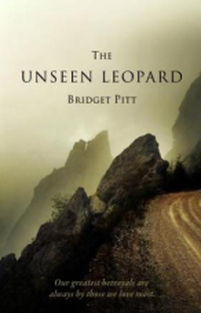
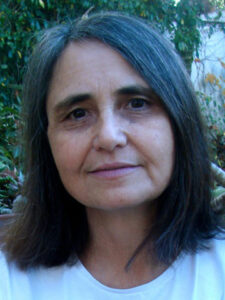
I interviewed Bridget Pitt, anti-apartheid activist, environmentalist and novelist. Bridget’s story ‘Next Full Moon We’ll Release Juno‘ was shortlisted for the 2013 Commonwealth Short Story competition, and ‘The infant Odysseus’ was runner up in the 2015 Short Sharp Story Award. Recently, ‘The Rhino’s Child‘ came second in the Aftermath End of the World Short Story contest.
Bridget says about her novels: “My first published novel, ‘Unbroken Wing’, was written in the sleep-starved daze of early motherhood, and draws on my experiences in the anti-apartheid struggle. ‘The Unseen Leopard’, published after 12 years of procrastination and feverish rewriting, reflects my growing concern with environmental issues… My latest novel, ‘Notes from the Lost Property Department’, explores memory, loss, mountains, and the monumental challenge of forgiving one’s parents.”
Leslie: Where and how did the urge to write first begin? What incidents and events have subsequently deepened your understanding of writing?
Bridget: When I was about 7 years old I wrote a poem about a dog dying under a tree. I thought it was deeply moving, and was amazed that I could create something so magnificent. Throughout my childhood I narrated my life to myself, and created a more pleasing parallel life that I told myself every night. I devoured books, and still do.
I think what has deepened my understanding of my writing is firstly the simple practice of reading and writing for my own interest and pleasure. Secondly reading critically – I studied English literature at university, and taught it at high school, and have always loved the process of literary analysis – the unpacking of a story, language and characters. But I think my biggest learnings have come from the feedback given by critical readings of my own writing – especially from readers and editors commissioned by agents and publishers, but also from friends who’ve read drafts, and post-publication readers and critics.
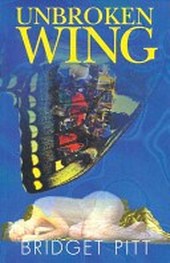
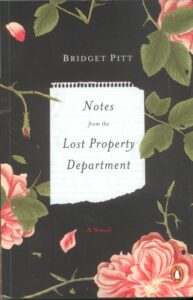
Leslie: What are the most important ways that living in South Africa has shaped your writing?
Bridget: South Africa is a vastly complex landscape, rich in narrative and human drama, but also with a deeply wounded history. This country, and in fact all of Africa, has phenomenal writing talent. It has been wonderful to see this blossom in the post-apartheid era (although it is still really tough for writers, black or white, since the reading audience is really small). I’ve been particularly inspired by black women writers.
As a writer, you have so much to draw on in this country. But being a white writer obviously poses many challenges. It would feel quite bizarre and artificial to write stories that only feature white people – and would in itself be a way of negating 90% of our population – but as a white person there are many complexities when writing about people of colour. I began to question racial privilege as an anti-apartheid activist in the 80’s, when my black comrades kindly alerted me to attitudes and behaviour flowing from my position of privilege. I try to be ruthlessly honest about my privilege, but I realise that I’m a product of my times and am doubtlessly oblivious in some regards.
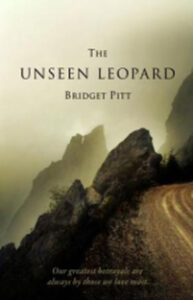
With writing, I try to get feedback on everything I write and be totally open to critical commentary – and I have learnt so much like that. I’m really grateful for the generosity of many black readers and writers that I’ve met.
Leslie: Can you give a brief overview of the most important pieces of writing you’ve achieved to date, please? What have you learned about yourself on the way?
Bridget: I think my most interesting piece of writing is one that has not yet been published – hopefully soon. It’s a historical novel, set in Zululand and Natal in the second half of the Nineteenth century. It traces the story of Daniel, son of English missionaries based in Zululand, and Moses, a Zulu foundling, who is raised as Daniel’s brother. At a young age, Daniel has a close encounter with a rhino. This places him in the liminal space between “creatureliness” and humanness, and leads to his alienation from his religious and social milieu. As a child cast out by his own birth culture and not fully embraced by his adopted one, Moses is equally at odds with his place in the world. The brothers rely on each other to make sense of their lives. But their brotherhood is a fundamental threat to the colonial order, and, as they grow up, it demands massive personal sacrifice for them to sustain it.
I wrote this novel after doing research in the Mfolozi area around rhino poaching. In speaking to the Zulu rangers, it became clear that the issue is rooted in the complex social history of the area, in particular the exploitative and extractive relationships laid down by British colonialism, and the poverty created by it. These historical events continue to fracture relationships between racial groups in South Africa, and between indigenous people, the land and other species, with devastating social and environmental consequences.
The novel is set in an interesting time – when the British missionaries first arrived in Zululand, they were very dependent on the good will of the Zulu King and his lieutenants. Successive Zulu kings also used the British to help quell the tribes they had vanquished in the past. In the twenty years that this novel takes place, this relationship was radically transformed as the British gained in strength and numbers, until they finally invaded Zululand and conquered the Zulu through military force. This period really highlights some critical social, ecological features of colonialism.
Leslie: Would you like to expand on the personal meanings of the two quotes about writing you use on your website: ‘Language is a cracked kettle on which we beat out tunes for bears to dance to, while all the time we long to move the stars to pity.’ – Gustave Flaubert ‘Poets have been mysteriously silent on the subject of cheese.’ – G.K. Chesterton.
Bridget: That first quote really resonated with me, because so often I have these incredible stories, characters and settings in my head, but they seem so dull and flat when I put them into prose. I have that constant feeling of not being able to find the words to express what I really want to say. Still, there are those rare beautiful moments when you move yourself with your writing (not sure if I ever trumped my old dog poem in this regard, but alas it is lost to memory!) – but those moments, and those even rarer moments when you move someone else, are what makes me keep at it. I think this quote also expresses something of the arrogance of writing fiction, you really make yourself godlike in creating whole worlds and people. You do long to move the stars to pity, but you’re lucky if you can just get the bears to dance!
As for the second Chesterton quote, it’s just a bit of silliness. A good balance to the Flaubert, which is all about grandiose ambition, and a gentle warning not to take myself too seriously
Leslie: What happens when you write?
Bridget: When it goes well, I really get drawn into a different world. And each time I delve back into a story, I learn more about all sorts of things, including the characters. Although I do quite a lot of back story work on my characters, some of it through art processes, for me the process of writing – and, in particular, rewriting – is a real process of discovery. It is so intimate, trying to imagine another person’s thoughts. I often develop real empathy, even for my nastiest characters. My greatest moments are those when I read something back and it feels like something that someone else wrote – in a good way.
Leslie: What was the process of researching and writing about your own colonial history? How has it contributed to your development as a truthful but empathetic writer?
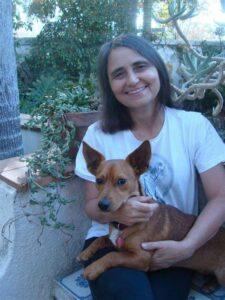
Bridget: It has been a really interesting journey. When I became an activist against apartheid, I realized that the colonial practices of my ancestors were destructive, but I’d seen colonialism as quite black and white (morally rather than racially!), a simple case of bad people stealing from the innocent. For my latest novel, I did extensive research into colonial history including reading a number of personal journals. It alerted me to the moral complexities of any historical era. It made me realized just how insidious and destructive colonialism was – not only socially, but also ecologically. But I also realized that most of the players weren’t bad people particularly, just people caught up in an exploitative system. A few (very few) British people actively questioned the morality of what was going on; some were actively cruel; but most were just ‘decent’ folk being brutalized by a brutal system, and believing the narratives that enabled them to live with themselves. At the same time, there were many indigenous people who were also sucked into the system and collaborated with the British. It made me more critical and yet also more empathetic towards my predecessors, and also illuminated how layers of privilege and deprivation are laid down and keep manifesting through the generations.
Leslie: Choosing the most important examples from your work, how have you translated personal experience into fiction? What have you changed and why? What language/character/moral issues come into play when an author ‘adapts from life’?
Bridget: The two novels I have written that are closest to my own life are my first one, ‘Unbroken Wing‘, which is about a white activist in the 80’s. I drew heavily on my experiences, but the person portrayed really wasn’t myself, and the characters were all fictional, although based more closely on real people than in the novels I’ve written since. I think it’s a classic tendency in a first novel, and it can really backfire if people feel that you have put them in your novel and portrayed them unfavourably, or exposed them, although no-one seemed to have felt that (or didn’t tell me if they did).
In my third novel, ‘Notes From the Lost Property Department’, I was drawing on my parents a lot, and on their experiences of brain trauma and dementia. I see the book as a bit of a love letter to both of them. The mother in the book is not my mother, but she expresses some of the wit, sassiness and indefatigability of my mother. I was sad in many ways that it was written after my mother’s death, so she never read it, but I also know I had a freedom in writing the character that I wouldn’t have had if she’d been alive. My father bears no resemblance to any of the characters, but he loved the mountain that features so prominently in the book it is almost a character in itself.
I think you have to be really careful as a writer. It’s a weird kind of power trip, to portray people you know in a fictitious way. Yet of course the people we know and our relationships with them is our material. I’m quite relieved to have written a historical book, where no one can claim that I stole from their lives to create a character, but now that I’m starting work on another contemporary novel I’m again confronting the complexity of creating believable characters without poaching my friends and relatives. I guess the best protection against offending anyone is to write with deep nuance and empathy, which makes you a better writer anyway.
I’m reminded of a Picasso aphorism that bad artists copy ideas, good ones steal them. We do steal from our relationships and our lives, but I think a good writer uses that theft to create something new.
Leslie: How far and in what ways have you pushed the boundaries of novel writing (and/or poetry and/or factual writing)? What drove you to attempt experimentation in the form?
Bridget: I don’t think I’ve really pushed boundaries very far, although I’m experimenting with some interesting points of view (ghosts, animals) in the novel I’m just beginning now. I find experimental writing interesting to read, but ultimately it has to be a really good and compelling story. I guess I feel like I have a long way to go before I’ve exhausted more conventional forms. I am very drawn to being creative with non-fiction, however, and have started exploring that in some of my shorter writing pieces.
Next week I interview artist Heather Tweed about her DREAM-ART AND TREASURE HUNTS,
ABOUT LESLIE TATE’S BOOKS:

I interviewed writer Julia Lee Barclay-Morton about her experience of autism. Julia began as an experimental dramatist in New York, moving to the UK to

I interviewed Gillean McDougall from Glasgow, who edited the collaborative projects Honest Error (on Charles Rennie Mackintosh and his wife Margaret Macdonald) and Writing the

I interviewed French writer Delphine de Vigan, whose book, No et moi, won the prestigious Prix des libraires. Other books of hers have won a clutch

I interviewed Joanne Limburg whose poetry collection Feminismo was shortlisted for the Forward Prize for Best First Collection; another collection, Paraphernalia, was a Poetry Book Society Recommendation. Joanne

I interviewed Katherine Magnoli about The Adventures of KatGirl, her book about a wheelchair heroine, and Katherine’s journey from low self-esteem into authorial/radio success and
| Cookie | Duration | Description |
|---|---|---|
| cookielawinfo-checkbox-analytics | 11 months | This cookie is set by GDPR Cookie Consent plugin. The cookie is used to store the user consent for the cookies in the category "Analytics". |
| cookielawinfo-checkbox-functional | 11 months | The cookie is set by GDPR cookie consent to record the user consent for the cookies in the category "Functional". |
| cookielawinfo-checkbox-necessary | 11 months | This cookie is set by GDPR Cookie Consent plugin. The cookies is used to store the user consent for the cookies in the category "Necessary". |
| cookielawinfo-checkbox-others | 11 months | This cookie is set by GDPR Cookie Consent plugin. The cookie is used to store the user consent for the cookies in the category "Other. |
| cookielawinfo-checkbox-performance | 11 months | This cookie is set by GDPR Cookie Consent plugin. The cookie is used to store the user consent for the cookies in the category "Performance". |
| viewed_cookie_policy | 11 months | The cookie is set by the GDPR Cookie Consent plugin and is used to store whether or not user has consented to the use of cookies. It does not store any personal data. |
3 responses
This is a very interesting post, Leslie. I have the same concerns about writing about different cultures as Bridget has expressed here. It is difficult to really understand someone else’s experiences, feelings and thoughts when their lives are very different to your own. I wanted to bring the native African experience into my Boer war book in a bigger way than I have, but there is little reliable information as stories were told orally by native Africans at this time. I have done the best I can to present a balanced perspective.
Thanks, Robbie. I thought there would be common ground between you and Bridget. 🙂 🙂 🙂
A great post, and it raises many issues writers struggle with, but some that are even more complex coming from South Africa, I am sure. Thanks and I will check Bridget’s novels. They sound fascinating.